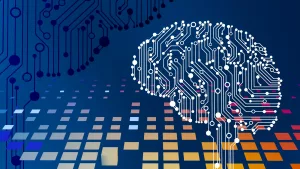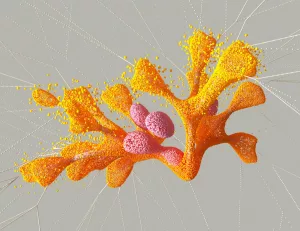Artificial Intelligence (AI) has shown remarkable capabilities in various linguistic tasks, but the idea of an AI system inventing a new language raises intriguing questions. Language creation has long been considered a unique human trait, involving intricate cognitive processes and cultural influences. However, recent advancements in AI, particularly in natural language processing and machine learning, have sparked interest in the possibility of AI-generated languages. The Creative Potential of AI is one of the key arguments supporting the idea of AI inventing a new language. Neural networks, equipped with large datasets and sophisticated algorithms, can generate language-like patterns and structures that are not constrained by traditional linguistic rules. This freedom from pre-existing frameworks allows AI to explore unconventional language features and invent novel communication systems.
AI’s Approach to Creativity
AI’s approach to creativity in language is fundamentally different from human creativity. While humans draw from cultural, historical, and personal experiences, AI synthesizes language through computational creativity. By processing enormous amounts of linguistic data, AI can identify patterns that may not be immediately apparent to human linguists. For example, AI algorithms can blend syntax from one language with phonetics from another, creating hybrid languages that challenge our conventional understanding of linguistic boundaries.
Case Study: Janelle Shane’s Experiments
An interesting example of AI’s creative potential is Janelle Shane’s experiments, where she trained a neural network to generate new words by analyzing existing dictionaries. The AI invented words like “smeat” and “blorft,” which, while nonsensical, demonstrate the capacity for AI to produce novel linguistic forms that could eventually be developed into a functional language.
Learning from Existing Languages
AI systems can analyze and learn from existing languages to create entirely new linguistic structures. By training on diverse language corpora and identifying underlying patterns, AI models can extract essential elements of languages and synthesize them into unique combinations. This process of language synthesis enables AI to blend linguistic attributes from multiple sources and generate innovative language variants.
Language Synthesis Techniques
The process of language synthesis involves several techniques:
- Pattern Recognition: AI models identify common linguistic structures and anomalies across different languages.
- Semantic Mapping: Creating a map of meanings that can be shared across languages, allowing for the synthesis of new semantic structures.
- Morphological Analysis: Understanding the structure of words to create new morphemes and word forms.
Practical Example: Conlang Development
Constructed languages, or conlangs, such as Esperanto and Klingon, offer a useful parallel. AI can streamline the process of creating conlangs by automating the synthesis of grammar rules and vocabulary. For instance, an AI could generate a conlang designed for specific purposes, such as efficient communication in space travel, by analyzing the linguistic needs and constraints of such an environment.
Evolving Language Dynamics
Language evolution is a dynamic process influenced by social, cultural, and technological factors. AI systems, operating at unprecedented speeds and scales, can simulate accelerated language evolution scenarios and predict future language trends. By exploring emergent linguistic patterns and experimenting with linguistic evolution models, AI has the potential to generate new languages that reflect contemporary societal dynamics.
Simulating Language Evolution
AI can simulate language change over time, offering insights into how languages might evolve under different conditions:
- Social Influences: AI can model how social interactions and cultural shifts influence language change, such as the adoption of slang or jargon.
- Technological Impact: By analyzing communication trends in digital media, AI can predict how technology might shape future language use.
Predictive Modeling
Predictive modeling in linguistics is another area where AI shines. For example, AI can predict which languages are likely to dominate in digital spaces or how globalization might lead to the merging of languages into new dialects.
Challenges and Ethical Considerations
Despite the exciting prospects, there are significant challenges and ethical considerations associated with AI-generated languages. Ensuring linguistic diversity, preserving cultural heritage, and addressing potential biases in AI-generated languages are critical considerations in language invention.
Cultural Sensitivity and Bias
- Preserving Heritage: AI must be programmed to respect and preserve linguistic heritage rather than overwrite it with new languages.
- Avoiding Bias: Language models can inadvertently perpetuate biases present in their training data. It’s crucial to develop AI systems that actively identify and mitigate these biases.
Ethical Dilemmas
AI-generated languages raise complex ethical dilemmas:
- Ownership and Control: Who owns a language created by AI? This question becomes particularly pressing when considering commercial applications.
- Communication Barriers: If AI-created languages become widespread, they could pose communication barriers for those not trained in these new languages.
Ensuring Inclusivity
To ensure inclusivity, developers must consider the accessibility of AI-generated languages. This includes creating tools for learning and translation, similar to initiatives in human language education and preservation.
Balancing the innovation potential of AI-generated languages with the need to uphold cultural and linguistic integrity poses a significant ethical challenge that necessitates a nuanced approach and thoughtful consideration of societal implications.
Interdisciplinary Collaboration
The development of AI languages should involve collaboration between technologists, linguists, ethicists, and cultural historians to ensure that these new languages serve humanity positively. This interdisciplinary approach can help in understanding the broader impacts of language creation and ensure that AI serves as a tool for enhancing human communication rather than complicating it.
Looking Forward
As AI continues to advance, the potential for AI systems to invent new languages offers a glimpse into the future of linguistic innovation and human-machine symbiosis. By navigating the complexities of language creation with ethical awareness and cultural sensitivity, AI can contribute to the rich tapestry of human communication while raising important questions about the nature of language, creativity, and artificial intelligence.
Future Research Directions
- AI and Cognitive Linguistics: Exploring how AI can contribute to our understanding of cognitive processes involved in language learning and creation.
- Cross-Cultural Language Development: Investigating AI’s role in facilitating cross-cultural communication through language synthesis.
The Role of AI in Language Preservation
One promising application of AI in language is its potential to aid in preserving endangered languages. Many languages worldwide are at risk of disappearing, and AI could play a crucial role in documenting and revitalizing these linguistic treasures.
Language Documentation
AI-powered tools can assist in the documentation of lesser-known languages by rapidly analyzing and transcribing spoken words into text. For example, machine learning algorithms could be used to parse audio recordings in endangered languages, preserving them for future study and revitalization efforts.
Revitalization Efforts
Once documented, AI can also help in the revitalization of languages by creating educational resources and translation tools. For instance, AI could generate language learning applications that use interactive methods to engage learners, helping to increase fluency among new speakers.
AI in Language Education
AI’s potential doesn’t stop at language invention—it extends into language education, offering innovative ways to teach and learn languages more effectively.
Personalized Learning
AI can customize language learning experiences based on individual needs and progress, using data-driven insights to adapt lessons to each learner’s pace and style. This personalized approach can significantly enhance the effectiveness of language education.
Interactive Tools
AI can develop interactive educational tools that provide real-time feedback and practice opportunities. For example, AI-driven chatbots can simulate conversations, allowing learners to practice speaking and listening skills in a low-pressure environment.
AI and Linguistic Research
In addition to practical applications, AI is a valuable tool in linguistic research, offering new insights into language structures and evolution.
Analyzing Language Patterns
AI algorithms can analyze vast amounts of linguistic data to uncover patterns and correlations that may not be evident through traditional research methods. This can lead to new theories about language development and usage.
Predictive Linguistics
AI’s predictive capabilities can also be applied to linguistics, helping researchers anticipate future language trends and shifts. This predictive power can inform language policy and planning, ensuring that linguistic diversity is maintained even as languages evolve.
Potential Risks and Mitigation Strategies
As with any technology, the development of AI-generated languages is not without risks. However, with careful planning and responsible development, these risks can be mitigated.
Misuse and Misinterpretation
One risk is the potential misuse or misinterpretation of AI-generated languages. Developers must ensure that these languages are used ethically and that their purposes are clear to prevent misunderstanding.
Ensuring Data Integrity
To prevent biases in AI-generated languages, it’s crucial to ensure the integrity and diversity of training data. This involves including a wide range of linguistic inputs to create balanced and inclusive language models.
Conclusion
As we venture deeper into the realm of AI and language creation, we stand at the cusp of a new era in linguistics. This journey not only broadens our understanding of language as a human construct but also challenges us to rethink the boundaries of creativity and innovation. Embracing this potential with caution and respect for human diversity will be key to unlocking the full benefits of AI-generated languages. By fostering interdisciplinary collaboration and maintaining a focus on ethical considerations, we can ensure that AI contributes positively to the evolution of language and communication.



